#(its minor but might still give the ick)
Explore tagged Tumblr posts
Text
yesterday I walked back from the river in flip flops and one of the paths we took had itty bitty gravel all over it and it kept getting in my shoes and I wasn't paying any attention bc I was like "tiny rocks can't hurt me."
WELL APPARENTLY THEY CAN LODGE THEMSELVES UNDER MY SKIN AND CREATE A TINY CRATER FULL OF ROCKS?!?! BC I WOKE UP WITH A HOLE FILLED WITH TINY ROCKS /IN MY TOE/.
#I got them all out it wasn't v hard#there were only like 3#but holy fuck#it hurt so bad#anyway note to sepf the tiny gravel is evil#also maybe I shouldn't walk around the woods in flip flops#tw injury#tw body horror#(its minor but might still give the ick)#also the actual injury is so tiny like#its not a serious injiry it was just tiny rocks that got stuck in my skin#it just rlly shocked me like#wtf lmao
0 notes
Text
Welp EarthSpark is officially done in Japan via the latest Figure King magazine.

Sorta rubs the Nucleon in the Energon wound that the news of cancellation comes in a magazine celebrating 40 years of Transformers, with a cover drawn by the Kiss Players guy no less, huh?
It’s also looking more apparent EarthSpark is finito in the States too. And some staff of the show are looking to blame fans for being the b-word and the p-word. Look fella, those words lost meaning just as much as “woke” did, just take your lumps like the rest of us and admit your show didn’t work because people simply had no interest in it. Also just terrible, TERRIBLE writing and pacing. I can forgive Rise of the TMNT’s faults due to Nick not knowing what to do with it and giving the staff unhelpful feedback that kept changing it (the Netflix movie finale was a much better look at what the show was trying to be and could’ve been, but alas), but EarthSpark I have no such compunction.
Hasbro was allegedly pretty hands off and was fine with what they were doing (at least at first) so the blame can only land on the writers who clearly misunderstood what they had. I detest modern shows that have uneven pacing, tone and characterization. It’s why I don’t look fondly on Adventure Time the moment it stopped being a goofy kids show and started being some college art student’s angsty wet dream.
Clearly something changed for EarthSpark internally, and I can’t help but think Hasbro and Paramount looked at the abysmal launch of the first batch of episodes and told the staff to drastically change the story for S2. That the trailer is a more traditional Autobots vs Decepticon conflict with them hunting for Emberstone pieces ala Transformers Animated and most importantly having evil Decepticon Terrans (something fans had stated as happening in some form from the start), shows they wanted to make this into a better boy brand thing again.
The first season overcompensates by focusing too heavily on the female cast, most of them bordering on obnoxious, while making most of the male characters into morons, again Robbie dying for contrived reasons but the Maltos instead choose to love up Mo while Robbie lays there clinging to whatever life force he has left at that moment.
Instead Robbie seems to be the primary focus, with a b-plot about him having a crush on someone. I’m guessing this is where the rumors saying Hashtag comes out as gay comes from as I suspect Hashtag remarks on Robbie’s female crush being adorable and tries to be his wingman (with probably the same results when she tried helping Jawbreaker).
I feel like the intention may have been to have Mo be the focus of S1 and Robbie for S2, but it doesn’t fully come off that way as the focus is too rambling on top of trying to focus on the Terrans and Bumblebee in an RiD15 style role again.
Also what the slag is this?
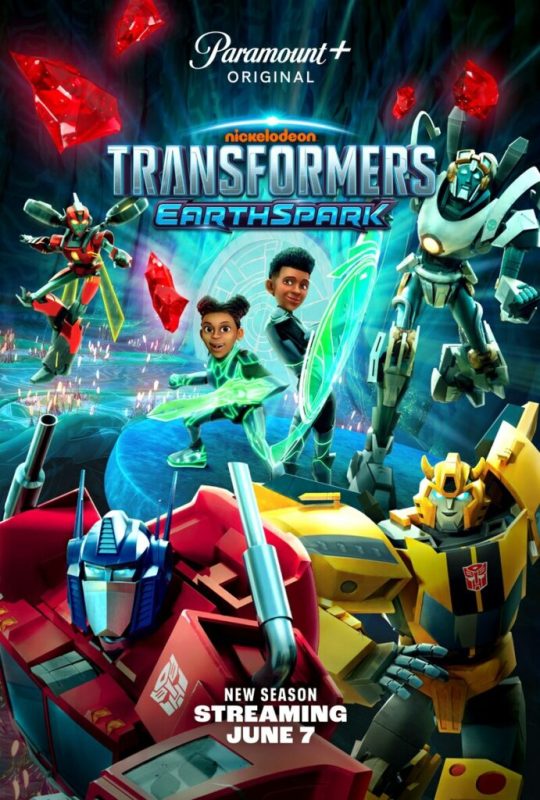
If there’s one thing I hate more it’s lazy photoshopping.

Not only do they just swap Bee and Prime’s renders around, they just crudely put the kids heads on these altered bodies from their preexisting stock art… Like no Quintessons or Terracons or nothing. Nothing to make you more legitimately excited for something new. Just the same Autobots and the kids in ReBoot Guardian Code suits, ick. It’s a bit of a downgrade compared to the Prime Apex Armor suits the toys use.
Despite the cancellation, the Japanese magazine refers to a “Slash Malt”(o). Presumably this might be a Terran version of the Dinobot Slash, whose only proper media presence has been a minor cameo in Japanese manga as the kid sister of the Dinobots and a supporting role in Rescue Bots Academy.

Frankly becoming a Terran might be the best thing for Slash, and it’s something I’m surprised toy wise wasn’t attempted anyway with characters like Lightbright, Lickity Split, Rubble, Gauge, Nightscream, and others.
So once again, what comes next? We don’t know still as of typing. Skybound is still knocking it out of the park with its Energon Universe, with the Joe portion moving on to Destro and Scarlett after having wrapped up Cobra Commander’s miniseries. Of note on Destro is the possibility MASK might be getting another go again, as what appears to be Miles Mayhem, the leader of the villainous VENOM faction, makes an appearance. The MASK and VENOM teams tend to be depicted as off shoots of Joe and Cobra in modern material, and with the pitch of the EU mentioning Energon being able to power machines, the transforming vehicles might be among the first specially designed vehicles developed to combat the Decepticons… Especially since Destro took interest in the idea of a transforming jet when he learned of Starscream.
The next cartoon is being worked on now, but we don’t know yet what it is. The easiest assumption is it’s a spin off of TFONE like how Mutant Mayhem has Tales of the TMNT, but it may be something else altogether. Barring anything TFONE does, EarthSpark was the last hold out of IDW’s post war ideas, and with Autobot Megatron mark II being viewed like this:
youtube
I think Autobot Megatron is largely done as a concept and with how merciless Skybound Megs is shown to be (though interestingly he did spare some Cobra-La guys when they told him what he wanted to know after stepping on one), I think we’re gonna be back to a traditional Megatron.
People are still not really feeling TFONE via recent upload on a TF fan convention YouTube channel, calling it terrible and cringey, so at this point I’m honestly just writing it off now (even though I’ll personally like it fine like the new Garfield Movie).
I stand by a new TF anime with a fun Mini-Con like gimmick built in the story is the way to go, because this incessant need to reject its toyetic roots is aggravating. At this stage I say let Skybound do the comics, and let Japan handle the cartoon, because clearly most people working now can’t write a decent TF cartoon without getting out of their sanctimonious way.
It’s time to Transform and Rise Up from this nonsense, and hopefully One helps with that more, but atm it’s all on Skybound until the next cartoon is ready. No pressure.
16 notes
·
View notes
Text
ok so heres the list of characters hayle and hada write for, and the idols list will prolly not be posted cus we decided theres gonna be another blog for that. :)
pink italics: hada's favorites. blue italics: hayle's favorites. bold: both writers' favorites.
bleach (ブリーチ) [sfw + nsfw for all characters except chad + kenpachi! he gives hada the ick and chad is a minor so obv we aint writing pedo shit. also as for strawberry (ichigo) bc yes we're aware he is still in school for like most of the first arc (i think?), we will write nsfw for strawberry bc he isnt a minor for the whole show but his character will not be any younger than 18.]
ichigo kurosaki (duh)
kukaku shiba, yoruichi shihoin
uyru ishida (we suppOSE we admins collectively hate him)
sosuke aizen
grimmjow (dont even make me spell his last name)
kenpachi MAYBE
kisuke urahara (there will be a lot of kisuke fics)
jugram haschwalth
toshiro hitsugaya
byakuya kuchiki
shunsui kyoraku
renji abarai
shuhei hisagi
szayel aporro-granz (our fav twink)
shinji hirako (BAR BARK BARK AROOO)
sado yasutora
jushiro ukitake
gin ichimaru (GRRRRRR BARK BARK)
ikkaku madarame (weird gay chrome dome ! :D)
yumichika ayasegawa (wow thats a spoonful)
nnoitra gilga
tesla lindocruz
izuru kira
kibune makoto
note: yoruichi and kukaku are not men, but they are mommy. soul eater MIGHT be added to the list, but most of the attractive guys are minors, sooooooooooooooooo. yeah. any fanfictions and fanarts posted in original posts on this blog are under copyright of this blog and its admins, unless we specifically state that we found an art piece on another site. if that happens a source link will be included.
© uraharasfavoriteexperiment.
#~ | posting#- rhy#《 heathen ♤#《 rhy writes ♡#《 heathenscratch ♤#bleach#bleach men x male reader#bleach x male reader#bleach ships#bleach anime
10 notes
·
View notes
Text
The Cybersix comics
So now i’ve read most Cybersix comics that are available in English scanlations. Mainly Pharmadan’s stuff.
And it is very different from the cartoon adaptation previously reviewed here, very different indeed.
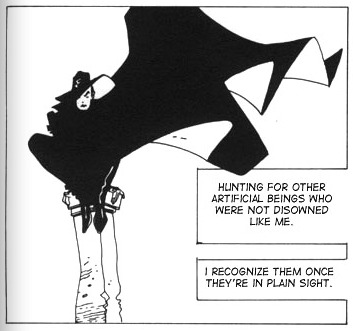
Anyway, the comics were created by Argentinian creators Carlos Trillo (scripts) and Carlos Meglia (art), in the early 1990s. And yes, i do think of them as Carlos & Carlos or the the two Carloses.
The premise is one i recognize from the cartoon adaptation. It is about the superhero Cybersix, a product of genetic engineering that has rebelled against her evil creator and fights the other products of his mad science, led by his clone son José.Her cover as a male literature school teacher named Adrian. She finds a friend in Lucas, the school’s biology teacher, with who she also sexual/romantic tension. Her allies include another product of the villain’s mad science, Data-7, who has the body of a panther and Julian, a street urchin she adopted.
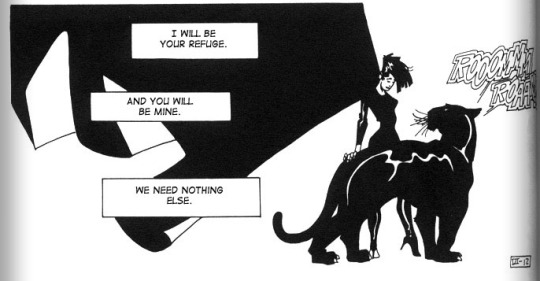
But the approach the comic book source material took to this is very different. The cartoon tv show is meant for children, even if it is on the darker side for such things. The comic is clearly meant for adults, and has a transgressive attitude with lots of violence and sex. And it is still almost 30 years later very shocking and offensive, it certainly was to me and I still kinda liked it. The word “problematic” has been much abused, but it still applies.
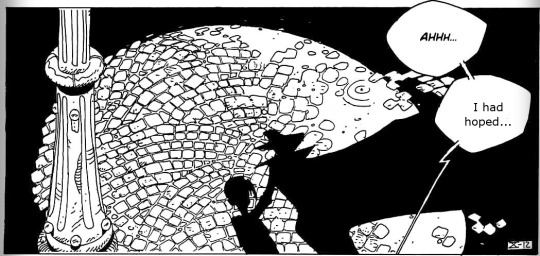
You could compare it to something out of the 90s “dark age” of American super hero comics, but to me the tone reminded me of artistic, provocative and very sexualized European comics, like something out of Métal Hurlant.
I’m therefore going to leave the rest of this review under a cut. Also it is getting kinda long. This might be a good point to put out some content warnings, ignore them at your own risk.
Content warning:: Discussions of: violence, racism, nazism, racist caricatures, sexualization of women, prostitution mention and (most disturbingly) sexual themes involving underage people (ick)
(most of this applies to the comic if you decide to read it, it can be worth checking out, but replace “discussion” and “mention” with just depiction, so be prepared for that.)
For one thing, the villain is clearly a nazi scientist who escaped from Germany to South America after the war. He is even named Von Reichter (the cartoon goes with Von Richter). This gives the comic a strong political edge. I don’t know exactly how controversial Argentina’s former status as a haven for escaped Nazis is in that country. But it probably is very controversial. Taking that subject in a critical manner might very well have been a genuinely brave move on part of the creators.

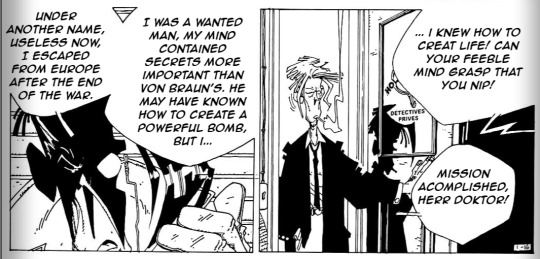
There is also the violence you might expect from a superhero comic. José is a particularly brutal villain this time around. Although Cybersix is remarkably non-violent. When she draws the sustenance she needs vampire-like from Von Reichter’s creations, she avoids killing them.
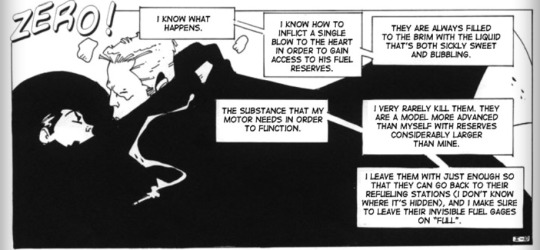
Concerning Cybersix’s gender, the comic doesn’t have the ambiguity of the cartoon. This time, it’s clear what her gender identity is, Cybersix is a woman.
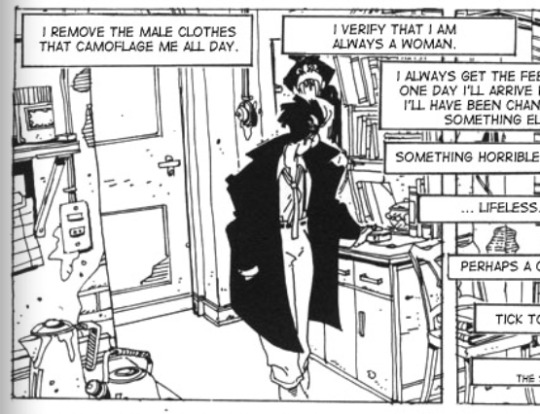
Her male identity is merely a disguise. Adrian Seidelman is a person who dies in a car accident who looks kinda like Cybersix, who has no legal status, and therefore she decides to steal his identity.
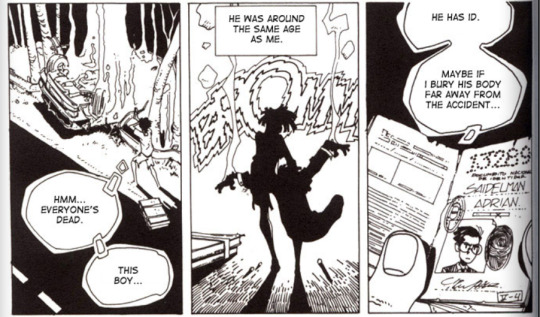
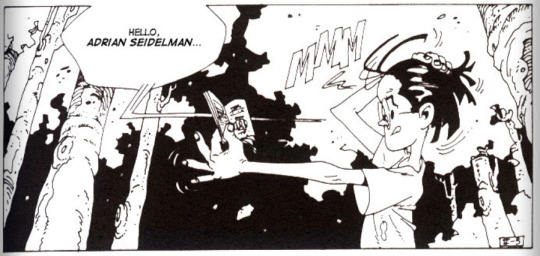
Cybersix remains an interesting character, but i frankly prefer the ambiguity of the cartoon.
Her questioning of her own humanity due to her origins was also in the comic and is a strong theme in her internal monologue here.
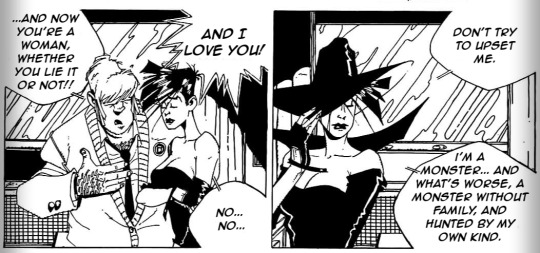
Interestingly from a gender perspective, she has this need to prove to herself that she is not just human, but specifically a woman.
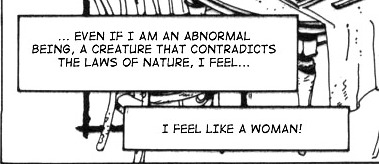
II is hard to avoid the subject of sexuality when talking about this comic, for it is almost omnipresent here. Cybersix is a very sexualized character. Her costume design is far from the worst example in comics, but like so many superheroines still designed with titillation in mind.
I found it hilarious that the comic’s actual explanation for the costume is that Cybersix stole it from the wardrobe of a literal sex worker. (the reason Cybersix broke into her home is that she was actually a Von Reichter creation that had infiltrated human society).
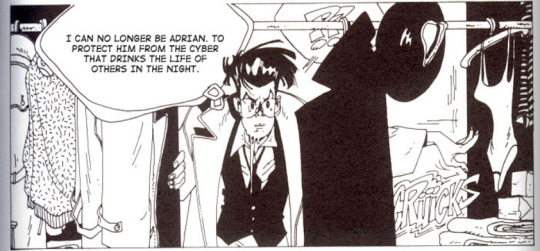
But this comic goes beyond most american comics and actually shows Cybersix naked surprisingly often. Her relationship with Lucas gets fairly explicit. If you find the crop of these panels odd sometimes, it’s because I’m trying to avoid showing something that breaks tumblr guidelines.
But the sexualization of Cybersix is actually a minor problem. The nude panels of her are almost quaint, like watching an old movie from the 70s which doesn’t bother to cutaway when a couple gets undressed. It isn���t really that disturbing, especially compared to the creepy sexuality in the rest of the comic.
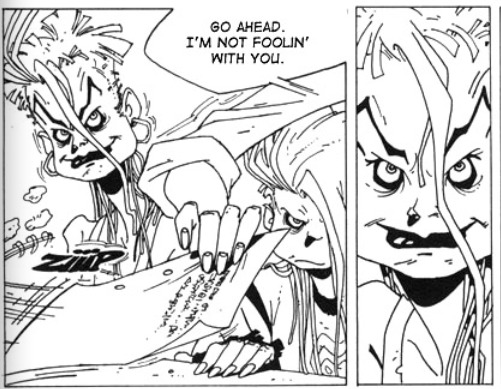
I didn’t mention Lori in my review of the cartoon. She is one of Adrian’s students who in the cartoon has a crush on him. That is kinda a disturbing theme in itself, but in the cartoon it is no big deal, because it is fairly toned down. In the comic, she is much, much worse.
She is obsessed with Adrian and very explicitly wants to have sex with him. Remember, Lori is a teenage schoolgirl. She also doesn’t care much for the concept of consent. For example, she mails Adrian her nudes unsolicited, and that is about the least worst thing she does. I’m not saying that isn’t terrible in itself, it is just that Lori does way worse things in this comic. You can understand this gets very uncomfortable to read about very quickly.
To be fair, while the trope of the sex-obsessed woman is often a male fantasy, it is very possible that Lori is supposed to be disturbing, rather than sexy. She is even drawn in a rather grotesque manner.
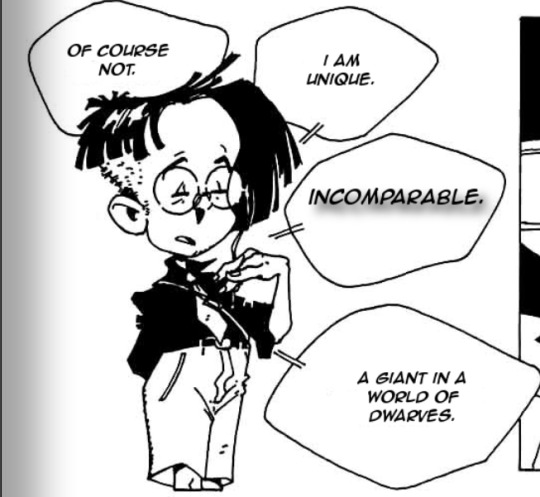
José is even worse. He has only the body of a child, but the mind of a man, including sexually. It isn’t nearly as prominent part of his character as it is with Lori, but this also becomes disgusting rather quickly, for obvious reasons. And then Lori and José meet and do it, oh my god. Although José’s sexuality is almost certainly meant to be creepy.
(because the world is full of people who can’t read properly I probably need to say: no, i don’t support pedophilia even if I think this comic also has its positive sides. Also, even though I can’t really speak for them and they have both passed away long ago, I’m pretty sure Carlos & Carlos didn’t support pedophilia either, if you can even call what horrors that go on in this comic that. Depiction in fiction doesn’t equal endorsement and all that.
This might be obvious from everything I written, but i have seen bad misreadings of what people write and the resulting misinformation spread so quickly on the internet, that writing out the obvious might be necessary. )
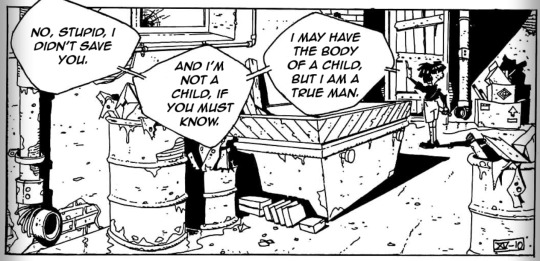
I must also talk about the depiction of race in this comic, which is odd. There are two important characters here, who are for lack of a better word, racialized.
One is a black man who saves Cybersix from Von Reichter when she was a child. She regards him as her father. The other is Miao Yashimoto, a Japanese private detective. His sister is kidnapped by Von Reichter, who forces Yashimoto to act against Cybersix, but he eventually becomes her ally.
Now describing them here, it doesn’t sound bad at all. That’s because their personality and role in the story isn’t the problem, it is how they are drawn. They, especially Yashimoto are very much racist caricatures. Yashimoto even has the stereotypical buckteeth. I won’t show you for obvious reasons, but you can always look up this comic yourself.
What is odd about this is that the intent clearly isn’t hateful. These are both heroic characters and the comic has a more or less explicit anti-racist message. A nazi is the villain for a reason. It is just that the creators clearly don’t realize the way Meglia drew these characters is not appropriate.
What is even weirder that Yashimoto was adapted into the cartoon, complete with buckteeth. And that was a show was made in Canada in 1999. Very strange.
Overall, the comic is very different from the cartoon and I have no idea why they picked this edgy adult comic as source material for.a tv show for children, but they did. It is surprisingly faithful to the comic in many ways. The premise is pretty much the same, only it is executed in a very different, child-friendly manner. I would argue that the cartoon is in many ways more enjoyable and accessible than the comic. The attempts of the comic to provoke its audience are often not successful, or maybe rather too successful.
As you can probably tell, my feelings on this comic are complex. I care not for the creepy sexuality or the hamfisted attempts to handle race. So I don’t know if I can recommend this comic. You do need a strong stomach for all this. But despite all that, there is still much to like about this comic The art is great; very evocative and atmospheric.
And the writing can be that too. Cybersix is still a great character. Her origin story, her existential angst and her difficult love story with Lucas are just as compelling if not more than in the cartoon.
Sadly, this comic is not widely available in English.The scanlations made or collected by Pharmadan is the most extensive and what I read so far. There is a person here on tumblr, who tried to continue scanlating them but they seem to have fallen prey to tumblr’s asinine content rules.and doesn’t seem to have been able to go elsewhere yet.
I’ll leave you with my favourite panel from the comic:
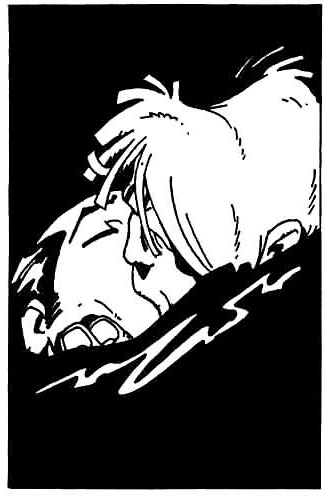
#cybersix#cybersix comics#carlos meglia#carlos trillo#pay attention to the content warnings please#comics made by men named carlos
31 notes
·
View notes
Text
Tbh, another part of why I’m so vehemently anti-RPF is like.....one of the first things any legit agent or manager asks an actor when they sign them is if they’re willing to do nude scenes and/or sex scenes. And when there’s an actor whose work you follow cuz you think they’re hot and you notice they’ve never been in any kind of sex scene or even a shirtless scene, that’s not like...by accident, most of the time.
Because a lot of actors aren’t comfortable with nude scenes. And it doesn’t have nearly as much to do with prudishness or religious reasons or any of that stuff as you might assume. I mean, I have done nude scenes. In some pretty big size productions as in with a full crew. And lemme tell you....they are NOT fun. Or sexy. Or hot. Like, even a little bit, lol.
Cuz like, its never just you and another actor in a bedroom. It’s you and another actor naked or close to naked.....in the middle of like.....forty fully dressed crewmen holding cameras and lighting and sound equipment and acting like you’re not just...naked in front of them, even though you and everyone else are actually super aware that yup, you definitely are.
And there’s a million lights on you and set lights are HOT, they make you sweat like crazy, and so when you’re doing a lot of takes and getting sweaty from the lights you constantly have people running up to you between takes and like....toweling you off in a completely unsexy way, lol, and reapplying makeup and the whole time they’re not even talking to you but to each other, like you’re not even there, b/c they’re not trying to be rude but they’re in a hurry, they have to do this fast so there’s not really time to strike up a conversation with you while they do it. But its TOO weird to just be doing it in silence so they usually solve that awkwardness by being in the middle of a convo as they run up to you and your scene partner and just keep continuing it before running back.
And the whole time you’ve got a cranky, stressed and taking it out on everyone director yelling at you to basically...be more sexy, lol, with you having to do take after take after take and not even look just as into it as you did the take before, but dig deep and look even MORE into it. Because you wouldn’t still be shooting if you’d already done it right, you’re obvsly ‘not being sexy right’. And gotta say, lol, nothing makes it easier to feel and thus act sexy than an asshole you’d never sleep with in a million years yelling about how he’s not feeling like he wants to fuck you yet or like you want to fuck him yet. And he’s the audience, he says, he’s the people in the seats of the movie theater watching you pretend-fuck on screen, and so if he doesn’t feel like you wanna fuck him, then how do you expect they’re gonna be able to put themselves in the fantasy and feel like you’re talking to them, like you wanna fuck them? Ick.
So I mean....there’s actually a lot of reasons for actors to not want to do nude scenes, both men and women. Or for them to do one and then never do one again. And that’s not even getting into the after part of things, like....the weirdness of spending several more weeks working closely with several dozen people who have all seen you naked, up close and personal. Or the weirdness of knowing who-knows-how-many ppl out in the general public then have seen it too, fantasized about you, with you having no idea who any of them are, if you’d be like...comfortable with them having that level of intimacy with you if you did know who they are...*shrugs* Because there’s not really an easy way around the fact that someone seeing you naked IS a form of intimacy in our society. You’re exposed. You’re....all out there for them to critique or have opinions on or form fantasies about, with no way to reciprocate. And that’s a very weird feeling. That crosses well over into uncomfortable when you factor in that there’s no way to opt out of being seen like that by people you KNOW you wouldn’t want to share that level of intimacy with if it was just you and them.
Like, there’s one closeted actor I knew years ago who grew up in a small conservative town, and early on in his career he did a lot of sex-type scenes, like he was one of those actors who is pretty much always in a state of undress on every show he’s on, early on in their career. And he used to say how he never thought twice about it, thought he was totally fine with it....until he went back to his hometown for the holidays for the first time in years, and had all these old classmates and neighbors both his age and older women too, like actual friends of his parents or people who’d known him since he was a kid....and they were fawning over him while he was there and giggling about those scenes and how racy they were and blah blah...but the point was, when he came back to LA after the holidays, he just couldn’t do scenes like that anymore.
Because, like he said, he’d never really thought of himself as someone who made the fact that he was gay a big part of his identity, but it was just too unsettling for him after that. Being aware that the very same people who were a huge part of why he was in the closet, because of all the shit they’d said when he was growing up about how gross and disgusting gay people and gay sex are...here they were, totally okay with and INTO simulated sex scenes that didn’t have an ounce of the intimacy he had in his actual sexual encounters with other guys.
He was like “they’d all call me disgusting and tell me I was going to Hell if they found out what I do with boyfriends in my own home, but what I do on camera, surrounded by dozens of total strangers with a woman I only just met at our audition a week ago and have seen maybe twice since, like....that works for them?” And it just skeeved him out too much. He stopped auditioning for roles like that cold turkey, and I don’t think he’s actually ever done a nude scene since. He couldn’t get over knowing that the older women from his church who’d be the first to gossip about how sinful he was for having a boyfriend were instead gossiping on facebook about how hot he looked in this bedroom scene or whatever.
Anyway. Didn’t mean to go off on this tangent and didn’t realize that last post would bring this up, lmao. And tbh, like, I don’t ENJOY doing nude scenes, but I’ve never been bothered to the point of turning down a paying job. Like, it skeeves me out sometimes, stuff like I mentioned in that last post, coming face to face (so to speak) with the knowledge that someone I deeply dislike on a personal level has seen me that way and enjoyed it, but for me its a level of discomfort where I’m like, yeah, not ideal, but I can live with it. But for a lot of actors, it is a dealbreaker.
And I feel this is something a lot of RPF-er’s don’t consider....like, with a lot of these celebrities, the way you’re talking about them, fantasizing about them, writing stories or sharing pictures about them, especially ones where there aren’t a lot of actual sexualized content available already for you to springboard off of, where you have to like...photoshop heads onto other bodies or make fanart from scratch.....they didn’t say they were cool with it. They didn’t give even the kinda tacit permission that comes from accepting a role where they willingly expose their entire body and self for anyone and everyone to see and to say or think whatever they want as a result. Like, someone accepting a job that casts them as the fantasy hero in a romance where they sweep their lover off their feet and gaze longingly into each other’s eyes and all that stuff....but with their clothes on....Its not exactly the same thing as voluntarily sexualizing themselves top to bottom, playing the part of an actively sexual being onscreen for you to then take in and absorb and do whatever you want with what they chose to put out there.
And thing is....this is still a form of consent, we’re talking about here. No, I’m not saying its the same kind as in a single person-to-person physical interaction. Violating someone’s consent so to speak, in this particular context, I’m not saying its interchangeable with someone being told no by a person and not stopping. I’m just saying....its not nothing either. You’re still taking away another human being’s right to decide whether or not they want you to have the level of intimacy that’s innately tied up in the viewing of a person in their most vulnerable state. Their right to decide whether they want you not just picturing them as a sexual fantasy, and in what ways.
Because like....that’s the other thing about consent. It needs to be given for each individual interaction. It’s not a one-time issued all access pass. An actor consenting to be a part of your sexual fantasies in the role and form of a character from a movie where they have sex with another consenting adult.....is not a blank check saying hey, I’m also totally fine with you using my face and likeness and even name in your fantasies where you put me opposite a minor, or a homophobe, or an abuser.
Like, just speaking for myself, I may be okay with however anyone chooses to view or think or talk about me based on the nude roles I’ve taken or in the context of them, even if it does make me kinda uncomfortable. But I very much would not the fuck be okay with someone sexualizing me opposite someone like, idk, Jared Leto, let’s say, someone that I fucking hate and would never in a million YEARS consent to being vulnerable, let alone intimate with, in any way, shape or form.
I mean, lol, if you’ve been following me for long at all, think about what you know about me as a person, just in terms of like things I’m obviously passionate about, things I talk a lot about etc. Now keeping in mind what you know of me and my personality just as a person who exists beyond any particular fantasy someone might have after seeing me in a role, picture me as an actor. Say I someday ended up in a role in a shared universe franchise like Marvel or DC, where Jared Leto also played a role in that franchise, even if it wasn’t in the same movie, if I never actually consented to be in a movie starring alongside Jared Leto. But by virtue of the big sprawling franchise we’re both in and thus tangentially linked, there’s enough basis for someone who finds him hot and who also finds me hot to go, okay, I wanna ship them together, I want to craft my own sexual fantasy starring them both together, and maybe even write it out, share it online.
Now....knowing me even just on a ‘i follow this person on a social media platform’ level....do you think I’d be remotely comfortable with that? Sure, I’ll probably never find out, you could say, assuming you convince yourself I don’t know how to use google or never google myself or SHOULD never google myself, because....idg that logic tbh but whatever. But you still know. Isn’t it even just a little bit skeevy, building a sexy fantasy around two people when you know or are even just a little sure one of them would not the fuck consent to that?
Like, there’s no law against that, obviously. No one’s gonna come banging on your door and say you can’t do that, that you have Harmed Me in some material way and I’m gonna sue or press charges. But just purely from the standpoint of acknowledging that you may not know me at all, but you know that I exist somewhere on this planet as a living, breathing, thinking entity with my own agency and likes and dislikes....shouldn’t what I want or feel matter? Especially if I do happen to feel very strongly about this, to the point where I’ve taken actionable steps to NOT consent to be in any situation with someone like that where it could remotely be construed as sexual, or even like he’s someone who I could tolerate being around, like his very existence doesn’t gross me out given some of the stuff he’s done. Making deliberate, conscious choices to not take roles opposite him, stuff like that.
Now sure, you don’t know if this is the case, have no way of knowing this about any random actor, that they feel this way or would or would not have this or that opinion about the scenario you’re placing them in, if it were brought to their attention, if you had the opportunity to ask them face to face ‘hey would you be okay with this?’
But that’s the point. You don’t know. But at least maybe focus on actors in their ROLES that they chose to play, where they showed up to work and said okay, here I am to my job pretending to be this character who isn’t me, to bring them to life and make them real for audiences, make them someone they can imagine, or yes, fantasize about. Instead of just assuming for yourself that hey anything and everything is fair game because they took their shirt off in a show once and they’re an actor anyway so what does it matter, this is what they get paid for....
Well. No. Its not what we get paid for. We get paid for the job we sign up to do. That we CHOOSE to do. An actor gets paid to be fodder for sexual fantasies based around their role as a sexy spy in a thriller, maybe, but that’s not and really shouldn’t be treated as interchangeable with acting like they’re getting paid to be fodder for sexual fantasies with anyone and everything in every possible kinky scenario, consent not required, no age limit, anything goes.
I’m not saying its wrong to have sexual fantasies about an actor who’s lodged in your brain in a sexual context because yeah, they’ve done sex scenes before. I’m just saying....there’s a lot of angles that a lot of people don’t put any thought into at all before just doing whatever they want, and all these very important conversations about consent and sexual agency and all that.....they don’t stop being necessary just because they’ve crossed into territory where you don’t want to have these particular conversations, where there’s a status quo you’re comfortable with even if you think a status quo in another area of society needs to be challenged.
Anyway.
Oops, I thought I was done but I kept going. Why am I like this. Okay, now I’m done. Anyway. Just thoughts I have and thus shared, do with them as you will.
20 notes
·
View notes
Photo

Hamilton: how Lin-Manuel Miranda’s musical rewrote the story of America (New Statesman):
[. . .] Because of the success of Hamilton – it has been sold out on Broadway since August 2015, won 11 Tony Awards and the 2016 Pulitzer Prize for Drama, and is on tour in Chicago and Los Angeles – there is now an industry devoted to uncovering and explaining its references. Yet the sheer ebullience of the soundscape is not enough to explain why it became a hit. To understand that, we need to understand the scope of its ambition, which is nothing less than giving America a new origin story. “Every generation rewrites the founders in their own image,” says Nancy Isenberg, a professor of history at Louisiana State University and the author of a biography of Aaron Burr. “He [Miranda] rewrote the founders in the image of Obama, for the age of Obama.”
In doing so, Miranda created a fan base that mirrors the “Obama coalition” of Democrat voters: college-educated coastal liberals and mid-to-low-income minorities. (When the musical first hit Broadway in 2015, some tickets went for thousands of dollars; others were sold cheaply in a daily street lottery or given away to local schoolchildren.) He also gave his audiences another gift. Just as Obama did in his 2008 campaign, Hamilton’s post-racial view of history offers Americans absolution from the original sin of their country’s birth – slavery. It rescues the idea of the US from its tainted origins.
[. . .]
There is, of course, a great theatrical tradition of “patriotic myth-making”, and it explains another adjective that is frequently applied to Hamilton: Shakespearean. England’s national playwright was instrumental in smearing Richard III as a hunchbacked child-killer, portraying the French as our natural enemies and turning the villainous Banquo of Holinshed’s Chronicles into the noble figure claimed as an ancestor by the Stuarts, and therefore Shakespeare’s patron James VI and I.
James Shapiro, a professor of English literature at Columbia University, New York, and the author of several books on Shakespeare, first saw the musical during its early off-Broadway run. “It was the closest I’ve ever felt to experiencing what I imagine it must have been like to have attended an early performance of, say, Richard III, on the Elizabethan stage,” he tells me. “But this time, it was my own nation’s troubled history that I was witnessing.”
Shapiro says that Shakespeare’s first set of history plays deals with the recent past, ending with Richard III; he then went back further to create an English origin story through Richard II and Henry V. “Lin-Manuel Miranda was trying to grasp the fundamental problems underlying contemporary American culture,” he adds. “He might, like Shakespeare, have gone back a century and explored the civil war. But I suspect that he saw that to get at the deeper roots of what united and divided Americans meant going back even further, to the revolution. No American playwright has ever managed to explain the present by reimagining so inventively that distant past.” And where Shakespeare had Holinshed’s Chronicles, Miranda had Ron Chernow.
There are Shakespearean references throughout his play. In “Take a Break”, Hamilton writes to his sister-in-law, Angelica:
They think me Macbeth and ambition is my folly. I’m a polymath, a pain in the ass, a massive pain. Madison is Banquo, Jefferson’s Macduff And Birnam Wood is Congress on its way to Dunsinane.
Shapiro says that these “casual echoes of famous lines” are less important than the lessons that Miranda has taken about how to write history. “Another way of putting it is that anyone can quote Shakespeare; very few can illuminate so brilliantly a nation’s past and, through that, its present.”
[. . .]
I love Hamilton – I think the level of my nerdery about it so far has probably made that clear – but I find it fascinating that its overtly political agenda has been so little discussed, beyond noting the radicalism of casting black actors as white founders. Surely this is the “Obama play”, in the way that David Hare’s Stuff Happens became the “Bush play” or The Crucible became the theatre’s response to McCarthyism. It’s just unusual, in that its response to the contemporary mood is a positive one, rather than sceptical or scathing. (And it has an extra resonance now that a white nationalist is in the White House. One of the first acts of dissent against the Trump regime was when his vice-president, Mike Pence, attended the musical in November 2016 and received a polite post-curtain speech from the cast about tolerance. “The cast and producers of Hamilton, which I hear is highly overrated, should immediately apologise to Mike Pence for their terrible behaviour,” tweeted Trump, inevitably.)
Hamilton tries to make its audience feel OK about patriotism and the idealism of early America. It has, as the British theatre director Robert Icke put it to me this summer, “a kind of moral evangelism” that is hard for British audiences to swallow. In order to achieve this, we are allowed to see Hamilton’s personal moral shortcomings, but the uglier aspects of the early days of America still have to be tidied away.
There’s a brief mention, for instance, of Jefferson’s relationship with his slave Sally Hemings – whom he systematically raped over many years. But the casting of black and Hispanic actors makes it hard for the musical to deal directly with slavery, and so the issue only drips into the narrative rather than being confronted. There’s a moment after the battle of Yorktown when “black and white soldiers wonder alike if this really means freedom – not yet”. Another sour note is struck in one of the cabinet rap battles between Hamilton and Jefferson, in which the former notes acidly, “Your debts are paid cos you don’t pay for labour.”
In early workshops, there was a third cabinet battle over slavery – and the song is available on The Hamilton Mixtape, a series of reworkings and offcuts from the musical. When a proposal is brought before Washington to abolish slavery, Hamilton tells the cabinet:
This is the stain on our soul and democracy A land of the free? No, it’s not. It’s hypocrisy To subjugate, dehumanise a race, call ’em property And say that we are powerless to stop it. Can you not foresee?
Ultimately, though, the song was cut. “No one knew what to do about it, and [the founding fathers] all kicked it down the field,” Miranda explained to Billboard in July 2015. “And while, yeah, Hamilton was anti-slavery and never owned slaves, between choosing his financial plan and going all in on opposition to slavery, he chose his financial plan. So it was tough to justify keeping that rap battle in the show, because none of them did enough.”
***
In March 2016, Lin-Manuel Miranda returned to the White House. This time, one of the numbers he performed was a duet from the musical called “One Last Time”, sung with the original cast member Christopher Jackson playing George Washington. After Alexander Hamilton tells the first US president that two of his cabinet have resigned to run against him, Washington announces that he will step down to leave the field open.
It is the political heart of the play’s myth-making, comparable to Nelson Mandela leaving Robben Island. The decorated Virginian veteran was the only man who could unite the fractious revolutionaries after they defeated the British. Washington could have become dictator for life; instead, he chose to create a true democracy. “If I say goodbye, the nation learns to move on./It outlives me when I’m gone.”
For a nation just beginning to think that Trump could really, actually become its president, seeing the incumbent acknowledge that his time was nearly over was a powerful moment. For Obama watching it in the audience, it must have felt like his narrative had come full circle.
Towards the end of the song, Hamilton begins to read out the words of the farewell address he has written, and Washington joins in, singing over the top of them. It was a technique cribbed from Will.i.am’s 2008 Obama campaign video, in which musicians and actors sing and speak along to the candidate’s “Yes, we can” speech.
In his memoir, Dreams from My Father, Obama had written, “I learnt to slip back and forth between my black and white worlds, understanding that each possessed its own language and customs and structures of meaning, convinced that with a bit of translation on my part the two worlds would eventually cohere.”
This was the promise of his presidency: that there was not a black America or a white America, a liberal America or a conservative America, but, as he said in his breakthrough speech at the 2004 Democratic convention, “a United States of America”. The man who followed him clearly thinks no such thing, but nonetheless the nation must learn to move on.
In his farewell address in January 2017, Obama returned to the “Yes, we can” speech, using its words as the final statement on his presidency:
I am asking you to hold fast to that faith written into our founding documents; that idea whispered by slaves and abolitionists; that spirit sung by immigrants and homesteaders and those who marched for justice; that creed reaffirmed by those who planted flags from foreign battlefields to the surface of the moon; a creed at the core of every American whose story is not yet written: yes, we can. Yes, we did.
For the playwright JT Rogers, this is the true triumph of Hamilton – giving today’s multiracial America a founding myth in which minorities have as much right to be there as Wasps. It is political “in the sense of reclaiming the polis” – the body of citizens who make up a country. “The little village we live in outside the city, everyone in the middle school knows the score verbatim,” Rogers adds. “They recite it endlessly and at length, like Homer.”
the full long-read here!
253 notes
·
View notes
Text
Scary Stories to Tell During an Election Cycle
(adsbygoogle = window.adsbygoogle || []).push({});
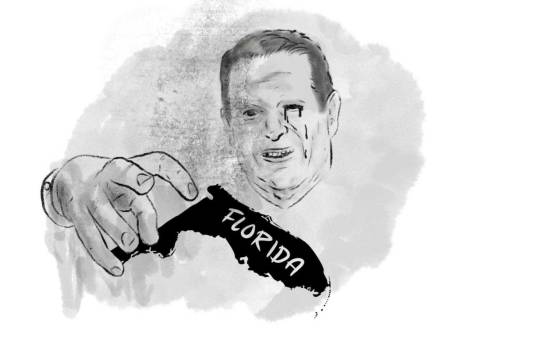
Where are My Votes?
At the turn of the century, two vastly different candidates were in competition for the American presidency.
Al, the more experienced of the two, lived his life cleanly and responsibly. A Harvard graduate and war veteran, he married his high school sweetheart before entering into the politics and eventually becoming the Vice President.
Georgie, on the other hand, could only be described as reckless. A draft dodger and a cocaine addict, the candidate seemed to command little respect from those around him. People assumed that the choice was an obvious one, and that it would be a simple victory for Al.
But it wasn’t. In fact, the election was so close, it was up to just one state to determine a winner. Unfortunately, that state was Florida.
Luckily for Georgie, however, he had friends in high places who ensured that the voting machines were not quite working the way that they were supposed to…
…
The next day, the election was over. Georgie had won. He retired to his new office to celebrate his victory with his favorite blend of champagne, pornography, and of course, cocaine.
Suddenly, in the midst of an intoxicated stupor. He heard a low, droning voice from behind him.
“Wheeeerrreeee arrrrreeeee myyyyy vooooootes,” it drawled.
Terrified, Georgie turned around to see Al on the television, his dead eyes burrowing into Georgie’s own.
“Wheeeerrreeee arrrrreeeee myyyyy vooooootes,” it repeated.
Desperate, Georgie reached for the remote and grasped it with a sweaty nervous hand. But, no matter where he turned, it was the same thing on every channel! Badly shaken, he turned off the television and went to bed.
Things were no better the next morning, however. No matter where he went, or who he talked to, he could always hear the echo of that voice.
“Wheeeerrreeee arrrrreeeee myyyyy vooooootes”
Eventually, these words became etched in his mind. He could hear them in his thoughts, in his dreams. It followed him everywhere, and he began to wonder why he even wanted to become president in the first place.
Then, thankfully for him, came 9/11.
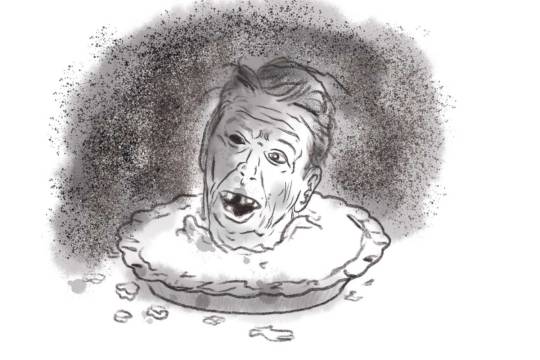
Reagan’s Apple Pie: A Game
This is a popular old political game, which continues to be played by Republicans today.
The first step is to gather a group of friends into a dark room, like a basement, closet or a voting booth, and have them close their eyes while you hand out your and tell them this story…
There was once a movie star named Ronald Reagan. He was a very poor actor, his worst role was playing the President of the United States. Still, he was quite popular with his base.
“Reagan is as American as apple pie,” people said.
But his pie was made of some very different ingredients. Instead, Reagan served up some very different flavors, listing them off throughout his campaign.
“This are our secure boarders” he said. (Popsicle sticks)
“These are our environmental initiatives (A bowl full of toxic sludge).”
(At this point, some players will get scared and tend to want to leave the room. Particularly minorities and disenfranchised groups.)
“Oh,” he added. “Don’t forget about our “trickle down” economic policy.” (A rotting carrot soaked in urine)
“Or our response to the AIDS crisis.” (Nothing).
(Now that your friends have their eyes closed, covertly sell weapons to Iran Contra terrorist groups.)
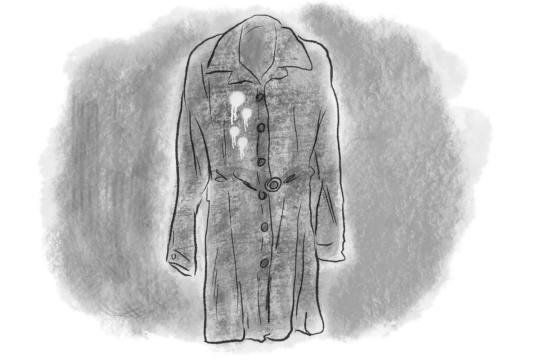
The Blue Dress
Billie Clinton had a problem with truth. He also had a problem with women.
Therefore, the trouble really began for him when he met the girl in the blue dress. A pretty young girl, she worked for him as an intern, which made it much easier for him to seduce her.
But, being Billie Clinton, he had to lie about it.
“I did not have sexual relations with that woman,” he told journalists.
In order to preserve his lie, Billie got vengeful, and decided to throw the girl in the blue dress to the wolves (journalists, pundits and other beasts), where her credibility was torn apart and laughed about around the world.
After that, Billie was certain that his problems were behind him, and went back to work. While there was still an ongoing investigation, he felt that he had the trust of the American people and that his detractors had no proof any wrongdoing.
So he was feeling quite confident when he walked onto the floor of congress a few weeks later and saw a a sight that terrified him to his very core…
There, in the middle of the room, was the dripping blue dress.
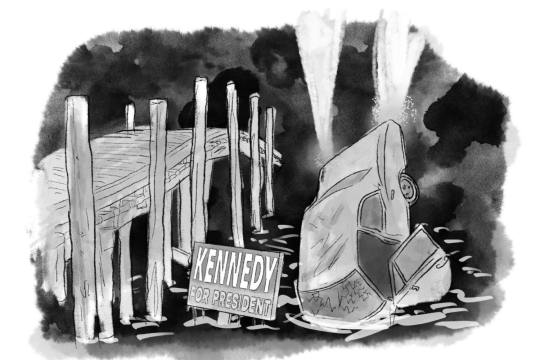
Chappaquiddick (or, The Kennedys Three): A Song
This is the story of the Kennedys Three,
The brothers Ted, John F. and young Bobby
Bobby was shot, John lost most of his head,
Though Ted was the one who’d have been better off dead
Cha-ppa-quidd-ick
Cha-ppa-quidd-ick
Ted was a drunk, and rowdy to boot
Didn’t cut a figure you’d bother to shoot.
As senator, he relied solely on name,
But held White House ambitions all the same
Cha-ppa-quidd-ick
Cha-ppa-quidd-ick
These hopes were dashed one dark night in ’69
When brother Ted committed a horrible crime
Cha-ppa-quidd-ick
Cha-ppa-quidd-ick
Leaving a party with a girl and a buzz
He drove off a bridge with his mind all a-fuzz
He swam to the shore in a narrow escape
Though the car and the girl were in far worse shape
Cha-ppa-quidd-ick
Cha-ppa-quidd-ick
The car sunk to the bottom, would have been hard to find
And reporting to police–must have slipped his mind
The courts found him guilty in the third degree,
But with all his connections, he simply walked free
Cha-ppa-quidd-ick
Cha-ppa-quidd-ick
He continued his life, with time to regret it
But as for the White House—boy, he could forget it.
Two brothers were martyred, but Ted couldn’t make it.
So when Death gives you a chance—be sure and take it.
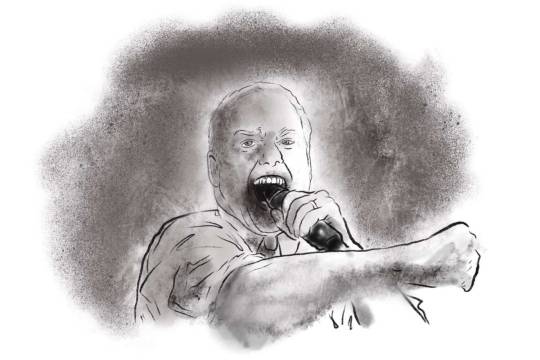
The Scream
Howard Dean was a senator from Vermont, and he loved his country. In fact, he loved it so much that he was determined to change how its corrupt elections were conducted. So, he spent time in every state in the country—not just those he believed he could win as a Democratic politician.
He went to the internet, a new invention, and began gathering funds from small donors rather than big investors. To everyone’s surprise, it actually worked— and he made it all the way to the Iowa Caucus.
Still, he knew that wasn’t enough. They made it to Iowa, sure, but he wasn’t done there. He was going to go to New Hampshire. He was going to South Carolina, and Oklahoma, and Arizona, North Dakota, New Mexico, California, and Texas and New York, and South Dakota, and Oregon, and Washington, and Michigan and then they were going to Washington DC to take back the White House. That was, until…
(Turn to one your friends and scream:)
“YEEEAAAAWWWWW!”

Trump-A-Dee-Dump: A Poem.
There once was a troll named Trump-A-Dee-Dump. Fa-la!
He ran to give his deflated career a pump. Ha-ha!
The news said he’d never get far. Nuh-uh!
But then won the primaries. Wha-wha?!
He mumbled about walls, and yelled about email. Rah-rah!
Proving that people will elect a troll as opposed to a female. Ma-ma!
You might think politics are for the calm and the lucid. La-la!
But one must remember—never underestimate stupid. Duh-Duh!
The Moral:
Although from under his bridge he might tweet and offend
Don’t think for one second it won’t happen again.
Scary Stories to Tell During an Election Cycle was originally published on Weekly Humorist
0 notes
Text
Timothy Glenn ~ Autumn 2018: The Dominoes Begin to Fall
Here’s a new update from Timothy Glenn. The only thing I would add to it is that — given the presence of twelve nuclear reactors in the path of Hurricane Florence — including two on the coast of North Carolina, I looked at the astrological aspects for today in Southport, NC. I used 11:11 a.m. September 12, 2018 for my calculations.
Since Pluto rules nuclear power, and Uranus rules unexpected, chaotic events, I paid special attention to those aspects. While highlighted with an almost exact Pluto in Capricorn trine Virgo Sun (0 degrees, 58′ separation) and Pluto sextile Jupiter in Scorpio (0 degrees, 03′ separation), at least these are less intense than the square or opposition. Uranus in Taurus almost exactly trines Saturn in Capricorn (0 degrees, 31′ separation) and opposes Venus (0 degrees, 10′ separation). I love Timothy’s interpretation of Uranus trine Saturn (below)!
With the Venus opposition, please keep in mind that relationships and control/freedom issues could become triggers or volatile. As my friend Toni says, “Take a breath of God.” Inhale love before reacting. Pray for discernment regarding authority and communication. Uranus also rules ideas of “brotherly love” and “highest good of all.” Chiron, the Wounded Healer, is almost exactly sextile Mars (0 degrees, 17′ separation). This is about as easy as Chiron-Mars alignments get, not a picnic, but an opportunity to exert will power in regards to healing self and others. Combined, all of these aspects favor everyday heroes rising to the occasion with compassion that flows from their own awareness and experience.
Those on the East Coast, especially in the Carolina’s, no doubt face major challenges in the days ahead, but these aspects also favor strong will power, healing and regeneration. As Timothy mentions at the end of the article, Divine Love helps us shift into neutral and full empowerment. From this space, miracles occur. Please send Reiki, prayers and loving energy as you feel led. All that said, here’s Timothy Glenn with astro-insights into the coming months.
Autumn 2018: The Dominoes Begin to Fall
by Timothy Glenn
As we approach the Autumn Equinox during a midterm election year in the United States, the traditional “October surprises” will start popping up in September. This will most likely result in “September surprises” and “October shocks”.
The conventional planetary controllers have been backed into a corner, and are now playing “for all the marbles.” Since they still control the TV networks, the major “newspapers” and the giant tech companies, they are spinning tall tales and spewing propaganda on an unprecedented scale. Their efforts to control the narrative will fail miserably. We have reached the point that too many ordinary folk-type humans know too much, and only a rapidly shrinking minority still believe the corporate-sponsored lies of the TV talking heads.
Profits of Doom
Referring to the old world controlling cabal, David Icke said, “These people are nothing if not predictable.” They might be diabolically clever within given parameters, but they lack genuine creativity. They operate from the same old musty dog-eared playbook ad nauseum.
They have always played games of distraction when their criminal machinations come uncomfortably close to being exposed to the public at large – false flag attacks, unnatural disasters, economic scares, Wag the Dog scenarios and other staged events – even starting major wars under the usual phony pretexts.
One of the common threads in all such criminality has been habitual profiteering. Most people recognize the value of the customary principle: “Follow the money.” However, many people refuse to follow a clearly marked trail of money if they sense it leads to specific politicians, companies and their complicit media outlets.
For those who fall into that category: is your emotional indulgence in a pre-packaged narrative really more important than the cold hard truth? If so, good luck with that.
Cui Bono?
Another key principle is commonly expressed by the Latin phrase that asks “to whom is it a benefit?” The perpetrators of high level crimes (like the JFK assassination or the 9/11 attacks) understand that investigators will employ this principle, so these villains will muddy the waters. They own the major media, and it naturally follows that their standard operating procedures will include spinning the narrative and proffering red herrings. Their informational sleight of hand will also involve trotting out scapegoats and framing patsies (as in the “lone gunman” scenario). They will hire agents to infiltrate the investigative community to generate confusion and conflict.
And who benefits from all nation-traumatizing crimes? The usual suspects. Follow the money. The international banksters and their ilk have funded both sides of every major conflict for centuries, and have laughed all the way to the banks they own.
Presidents, premiers, prime ministers, kings and queens are simply regarded as “the minion class” by the kingmakers and kingbreakers of the world. The presidential minions have merely served as playing pieces on the global chessboard, but the world will now be treated to a few stunning surprises as we come to the endgame of the puppet show.
Bombs Away
Truth bombs are barely beginning to drop on our heads concerning the corruptocrats who have been selling us down the river while pretending to be our friends. The real barrage is about to commence.
Perhaps the time has come to get blunt. Maybe the sincerest act of love could be to slap someone up alongside the head with a cold wet towel of truth.
Let’s start with something really basic. Most countries follow this fundamental pattern. Here in the United Sates, I often ask the sleepers: “Do you really not understand that both of these major political parties are owned and operated by the same financial interests at the top of that infamous pyramid scheme that plays a game of divide and conquer? If not, you haven’t even qualified for kindergarten.”
9/11 Truth
This article is being written on the 17th anniversary of the 9/11 attacks. Most of us know better than to believe the cockamamie official story of that tragedy. In fact, lots of us tend to suspect or even dismiss out-of-hand the official narrative on just about everything the system spews out.
This is also the day that Mars enters the sign of Aquarius in the tropical zodiac, which is predominant in Western civilization. Get ready for government documents to be declassified, so we can see for ourselves what has gone on behind the curtain of deception. Thus will begin the September surprises, preparing us for the October shocks. And all of that will simply prime the pump for the world-changing revelations to follow in the next several years. Truth will out.
Squaring Off
Mars will now proceed to tighten and empower a Grand Cross (a.k.a. Grand Square) as Mars moves up to conjoin the south node of the moon. The lunar nodes (with Mars at the south) are being squared by Venus (who entered Scorpio on the 9th) and by Uranus in Taurus. This will add a spark to the foreshadowing processes that are delineated in the article Uranus in Taurus: The Preview.
Squares (90 degree angles) and oppositions (180 degrees) have long taken a bad rap in astrological circles. This is primarily due to their tendency to serve as a call to action, as well as a demand for change.
The aforementioned article ended with this:
As our old friend the Buddha said, “Change does not cause pain. Resistance to change causes pain.”
Since we have the common saying “the truth hurts”, let’s do a variation on Buddha’s theme: “Truth does not cause pain. Resistance to truth causes pain.”
It won’t help to anticipate disaster. Besides, Saturn is forming a tight trine (120 degrees) to Uranus and a tight sextile (60 degrees) to Venus. These are user-friendly aspects. Saturn will help us lay the foundation for restructuring our world.
Instead of seeing Saturn as the mean old taskmaster of the solar system, it might help to picture him as a young engineer who is totally jazzed because he just figured out some cool ways to give us awesome upgrades. All we need to do is let go of our obsolete programming.
Shifting into Neutral
The challenge facing many people is to achieve a state of genuine neutrality when viewing the dog-and-pony show on the world stage. We will all benefit from watching events unfold from a state of Divine Love, which is a completely neutral force.
Some folks have countered that concept by insisting, “No, no, no. Divine Love is always a positive force.” However, Divine Love is the energetic essence of the Infinite Energy Field in its Wholeness. At that level, it isn’t dividing itself into positive and negative, nor any other type of polarity. Divine Love transcends the limitations of duality. It just is.
If we can “just be” in a state of Divine Love, we can enjoy the show. After all, it’s a fascinating movie, and we have good seats. Pass the popcorn.
Timothy Glenn http://www.soulpurposereadings.com/
from Thomas Reed https://laurabruno.wordpress.com/2018/09/12/timothy-glenn-autumn-2018-the-dominoes-begin-to-fall/
0 notes
Text
Why People Faint at the Theater
Consciousness is the foundation of the human experience. Lose it even temporarily, however, and it becomes clear how delicate the whole structure is.
This has become clear to certain audience members at the current Broadway production of 1984, which is running until October 8. There have been reports of viewers fainting, vomiting, fighting, and experiencing seizures due to the play’s vivid torture scenes (including electrocution) and confrontational attitude toward the audience (including actors shouting at viewers about their complicity).
Codirector Robert Icke is used to this by now. Before transferring to New York, the production ran for several years in London. Particularly in its first year, he told me, the first-aid charity “St. John Ambulance used to park outside the matinees in advance.” While the New York theater warns attendees of the play’s “graphic depictions of violence and torture,” Icke contends that the play isn’t actually all that explicit. He argues that theatergoers are fainting because of what’s implied. “It isn’t so much staging—we show hardly any violence at all in 1984—it’s about leading the audience to create the unthinkable images in their own imaginations. That way, the images are personal and therefore far more distressing than anything we could depict.”
Whether these faints are provoked by what’s on stage or what’s happening in viewers’ minds, it’s an emotional distress that is prompting audience members to pass out. Physically, they’re probably perfectly safe. So what’s causing them to faint?
Broadly speaking, there are three main types of faints: ones stemming from serious heart problems (cardiac syncope), ones where blood pressure dips due to standing up (orthostatic syncope), and ones caused by specific triggers (reflex syncope). While plenty of animals faint—miniature schnauzers are prone to irregular heartbeats, for instance, and squirrel monkeys can have low blood sugar—reflex faints appear to be unique to humans.
Reflex faints are activated by the nervous system, which slows down the heart rate and/or lowers the blood pressure in response to strain, leading to reduced blood flow to the brain. Triggers for this can be surprisingly benign. For some people, laughing, coughing, swallowing, urinating, or blowing a trumpet can lead to syncope. Win-Kuang Shen, a Mayo Clinic cardiologist and coauthor of the recently published clinical guidelines for assessing and treating syncope, explained that the nervous system doesn’t distinguish between physical and emotional distress; they’re both stress inputs, leading to the same response.
The most common reflex faints are known as vasovagal faints. Generally, when people describe ordinary fainting, they’re referring to vasovagal syncope. “One-third of the population has vasovagal faints,” said J. Gert van Dijk, a neurologist at Leiden University in the Netherlands.
The name derives from “vaso” (blood vessels) and the vagus nerve, which extends from the brain to the abdomen, spreading fibers to major organs like the heart and lungs. The vagus nerve is responsible for regulating heart rate, sweating, and other essential functions. Triggers like the ones mentioned above lead to confusion in the mechanism for controlling heart rate and blood pressure. Vasovagal faints are essentially a protective mechanism.
Let’s take an example. You’re watching a scary movie or a play about ghosts. During the tense bits, adrenaline is released into your bloodstream. This leads your heart to beat faster and the blood flow to your muscles to increase. Essentially, the nervous system is bolstering your energy and preparing you to fight, as it doesn’t make the fine distinction that what’s on screen or on stage can’t actually hurt you. The parasympathetic nervous system, of which the vagus nerve forms part, seeks to calm you down by lowering your blood pressure and heart rate. Sometimes, though, it overshoots, and your blood pressure might drop too much or your heart rate might slow too far.
Emotional faints are the most common kind of faints overall. These can be activated by fear, excitement, or anxiety, such as one might experience at an intense play like 1984. As van Dijk commented, “It looks horrible and it grabs you emotionally. And if you have the type of vasovagal faint which is prone to emotional triggers such as seeing blood or pain, that can certainly evoke fainting in susceptible people.”
Shen confirmed that just thinking about something distressing can be enough to cause fainting. The sight of blood is one reported by many people, but clinicians have also reported faints provoked by hearing bad news, encountering needles, or seeing gore.
This gore doesn’t even have to be real to create a swoony feeling. The long list of movies that have been reported to make viewers faint includes not just contemporary horror films like Hostel and Raw, or dramas with intensely gory scenes like 127 Hours’ infamous arm-sawing. In 1928, a nurse at a San Francisco movie theater reported that Bela Lugosi’s Dracula, which would be tame to modern audiences, caused about 14 viewers to faint each evening.
In the theater world, as well, every so often a new production will give rise to faints. While theater directors may not have access to all the cinematic trickery of, say, horror-film crews, they have one very valuable tool: The scenes are happening live, in real time. “Live performances would be more of a trigger” than recorded ones, said David G. Benditt, a University of Minnesota cardiologist. “The differences between live events and filmed events may be the realism aspect ... Live events look more real.”
The current version of 1984 is the most recent example of fainting-related notoriety, but there have been plenty of others. There was a notoriously bloody staging of Titus Andronicus at Shakespeare’s Globe Theater in 2014. The show counted among its victims a theater critic from The Independent, who called the production both “exceptional” and “unwatchable”—unwatchable, presumably, because she was unconscious for part of it.
A commonality in these cases is in the quality of the acting. Many of the firsthand accounts from the fainting viewers call attention to the intensity of a performance, even when the violence is implied, as in Alan Ayckbourn’s Haunting Julia (staged in 2011), rather than overt.
Accounts of swooning at the theater are nothing new, though. The 1782 premiere of Friedrich Schiller’s Die Räuber, a dissection of evil played out between two brothers, took place in Mannheim, Germany. The naturalistic response by one actor, on receiving news of a character’s death, so shocked the audience that “fainting women had to be helped toward the exits.” More than 200 years later, and audiences are still passing out at the sight of actors on stage.
Of course, this sort of thing is good for publicity. Audience members and critics often feel a morbid curiosity about a piece of entertainment so apparently shocking that it causes people to pass out, and savvy directors and PR staff have played up these reputations to increase buzz.
“Most fainting in the theater is true syncope due to emotional distress triggered by the show,” Shen said. However, some incidents may not be genuine faints. Even medical professionals and the fainters themselves can find it hard to tell the difference. Without blood-pressure and heart-rate monitors, Shen noted, it would be very difficult to distinguish between psychogenic pseudosyncope (PPS)—where there’s no actual loss of consciousness—and the real deal.
In PPS, psychological issues are manifested physically, in symptoms that mimic fainting. As van Dijk explained, “These attacks are usually the result of unresolved psychological trauma, which can be fairly severe.” For instance, Benditt noted, “physical/sexual abuse is reported in about one-third” of patients with PPS.
This means not that some audience members are faking it, but that emotional distress can lead to either a true faint, which can be medically explained, or PPS, which can’t. Researchers aren’t entirely sure what’s happening in the body during the latter. But that doesn’t mean nothing is happening in the body. Benditt said of PPS sufferers he’s encountered, “they are often immune to painful stimuli during the event.”
There are other clues about whether a collapse is a true faint or PPS. There would be catastrophic cerebral harm after several minutes without blood going to the brain, so a person who lies prostrate for 20 minutes or so, without any permanent damage, hasn’t genuinely fainted. But there are also some “very minor indications” that a faint isn’t genuine, neurologist van Dijk mentioned. In actual loss of consciousness, “the eyes are almost always open,” while in apparent loss of consciousness, it’s common to report eyes closed or eyelids flickering, swallowing, and odd postures.
However, he stressed the importance of not stigmatizing fainters and pseudo-fainters, regardless of the cause. Both types can be concerning, in addition to being difficult to distinguish. And “most people who are prone to fainting due to standing ... are also prone to fainting due to fear. It doesn’t mean that they’re psychologically less able to handle stress [or] particularly more frightened than someone else.” So if you swoon at the theater, it may not be a true loss of consciousness. And even if it is, it’s not an indication of weakness.
Shen emphasized, “Reflex syncope is almost always benign. And patients who are prone to reflex syncope shouldn’t be too anxious. Once you’re anxious, it may facilitate more of these spells.” People can “take very simple precautionary steps” like drinking plenty of water, avoiding triggers, and staying seated. But overall, being faint of heart in these situations tends to be, well, only faintly concerning.
from Health News And Updates https://www.theatlantic.com/health/archive/2017/09/for-the-faint-of-heart/540984/?utm_source=feed
0 notes
Text
Why People Faint at the Theater
Consciousness is the foundation of the human experience. Lose it even temporarily, however, and it becomes clear how delicate the whole structure is.
This has become clear to certain audience members at the current Broadway production of 1984, which is running until October 8. There have been reports of viewers fainting, vomiting, fighting, and experiencing seizures due to the play’s vivid torture scenes (including electrocution) and confrontational attitude toward the audience (including actors shouting at viewers about their complicity).
Codirector Robert Icke is used to this by now. Before transferring to New York, the production ran for several years in London. Particularly in its first year, he told me, the first-aid charity “St. John Ambulance used to park outside the matinees in advance.” While the New York theater warns attendees of the play’s “graphic depictions of violence and torture,” Icke contends that the play isn’t actually all that explicit. He argues that theatergoers are fainting because of what’s implied. “It isn’t so much staging—we show hardly any violence at all in 1984—it’s about leading the audience to create the unthinkable images in their own imaginations. That way, the images are personal and therefore far more distressing than anything we could depict.”
Whether these faints are provoked by what’s on stage or what’s happening in viewers’ minds, it’s an emotional distress that is prompting audience members to pass out. Physically, they’re probably perfectly safe. So what’s causing them to faint?
Broadly speaking, there are three main types of faints: ones stemming from serious heart problems (cardiac syncope), ones where blood pressure dips due to standing up (orthostatic syncope), and ones caused by specific triggers (reflex syncope). While plenty of animals faint—miniature schnauzers are prone to irregular heartbeats, for instance, and squirrel monkeys can have low blood sugar—reflex faints appear to be unique to humans.
Reflex faints are activated by the nervous system, which slows down the heart rate and/or lowers the blood pressure in response to strain, leading to reduced blood flow to the brain. Triggers for this can be surprisingly benign. For some people, laughing, coughing, swallowing, urinating, or blowing a trumpet can lead to syncope. Win-Kuang Shen, a Mayo Clinic cardiologist and coauthor of the recently published clinical guidelines for assessing and treating syncope, explained that the nervous system doesn’t distinguish between physical and emotional distress; they’re both stress inputs, leading to the same response.
The most common reflex faints are known as vasovagal faints. Generally, when people describe ordinary fainting, they��re referring to vasovagal syncope. “One-third of the population has vasovagal faints,” said J. Gert van Dijk, a neurologist at Leiden University in the Netherlands.
The name derives from “vaso” (blood vessels) and the vagus nerve, which extends from the brain to the abdomen, spreading fibers to major organs like the heart and lungs. The vagus nerve is responsible for regulating heart rate, sweating, and other essential functions. Triggers like the ones mentioned above lead to confusion in the mechanism for controlling heart rate and blood pressure. Vasovagal faints are essentially a protective mechanism.
Let’s take an example. You’re watching a scary movie or a play about ghosts. During the tense bits, adrenaline is released into your bloodstream. This leads your heart to beat faster and the blood flow to your muscles to increase. Essentially, the nervous system is bolstering your energy and preparing you to fight, as it doesn’t make the fine distinction that what’s on screen or on stage can’t actually hurt you. The parasympathetic nervous system, of which the vagus nerve forms part, seeks to calm you down by lowering your blood pressure and heart rate. Sometimes, though, it overshoots, and your blood pressure might drop too much or your heart rate might slow too far.
Emotional faints are the most common kind of faints overall. These can be activated by fear, excitement, or anxiety, such as one might experience at an intense play like 1984. As van Dijk commented, “It looks horrible and it grabs you emotionally. And if you have the type of vasovagal faint which is prone to emotional triggers such as seeing blood or pain, that can certainly evoke fainting in susceptible people.”
Shen confirmed that just thinking about something distressing can be enough to cause fainting. The sight of blood is one reported by many people, but clinicians have also reported faints provoked by hearing bad news, encountering needles, or seeing gore.
This gore doesn’t even have to be real to create a swoony feeling. The long list of movies that have been reported to make viewers faint includes not just contemporary horror films like Hostel and Raw, or dramas with intensely gory scenes like 127 Hours’ infamous arm-sawing. In 1928, a nurse at a San Francisco movie theater reported that Bela Lugosi’s Dracula, which would be tame to modern audiences, caused about 14 viewers to faint each evening.
In the theater world, as well, every so often a new production will give rise to faints. While theater directors may not have access to all the cinematic trickery of, say, horror-film crews, they have one very valuable tool: The scenes are happening live, in real time. “Live performances would be more of a trigger” than recorded ones, said David G. Benditt, a University of Minnesota cardiologist. “The differences between live events and filmed events may be the realism aspect ... Live events look more real.”
The current version of 1984 is the most recent example of fainting-related notoriety, but there have been plenty of others. There was a notoriously bloody staging of Titus Andronicus at Shakespeare’s Globe Theater in 2014. The show counted among its victims a theater critic from The Independent, who called the production both “exceptional” and “unwatchable”—unwatchable, presumably, because she was unconscious for part of it.
A commonality in these cases is in the quality of the acting. Many of the firsthand accounts from the fainting viewers call attention to the intensity of a performance, even when the violence is implied, as in Alan Ayckbourn’s Haunting Julia (staged in 2011), rather than overt.
Accounts of swooning at the theater are nothing new, though. The 1782 premiere of Friedrich Schiller’s Die Räuber, a dissection of evil played out between two brothers, took place in Mannheim, Germany. The naturalistic response by one actor, on receiving news of a character’s death, so shocked the audience that “fainting women had to be helped toward the exits.” More than 200 years later, and audiences are still passing out at the sight of actors on stage.
Of course, this sort of thing is good for publicity. Audience members and critics often feel a morbid curiosity about a piece of entertainment so apparently shocking that it causes people to pass out, and savvy directors and PR staff have played up these reputations to increase buzz.
“Most fainting in the theater is true syncope due to emotional distress triggered by the show,” Shen said. However, some incidents may not be genuine faints. Even medical professionals and the fainters themselves can find it hard to tell the difference. Without blood-pressure and heart-rate monitors, Shen noted, it would be very difficult to distinguish between psychogenic pseudosyncope (PPS)—where there’s no actual loss of consciousness—and the real deal.
In PPS, psychological issues are manifested physically, in symptoms that mimic fainting. As van Dijk explained, “These attacks are usually the result of unresolved psychological trauma, which can be fairly severe.” For instance, Benditt noted, “physical/sexual abuse is reported in about one-third” of patients with PPS.
This means not that some audience members are faking it, but that emotional distress can lead to either a true faint, which can be medically explained, or PPS, which can’t. Researchers aren’t entirely sure what’s happening in the body during the latter. But that doesn’t mean nothing is happening in the body. Benditt said of PPS sufferers he’s encountered, “they are often immune to painful stimuli during the event.”
There are other clues about whether a collapse is a true faint or PPS. There would be catastrophic cerebral harm after several minutes without blood going to the brain, so a person who lies prostrate for 20 minutes or so, without any permanent damage, hasn’t genuinely fainted. But there are also some “very minor indications” that a faint isn’t genuine, neurologist van Dijk mentioned. In actual loss of consciousness, “the eyes are almost always open,” while in apparent loss of consciousness, it’s common to report eyes closed or eyelids flickering, swallowing, and odd postures.
However, he stressed the importance of not stigmatizing fainters and pseudo-fainters, regardless of the cause. Both types can be concerning, in addition to being difficult to distinguish. And “most people who are prone to fainting due to standing ... are also prone to fainting due to fear. It doesn’t mean that they’re psychologically less able to handle stress [or] particularly more frightened than someone else.” So if you swoon at the theater, it may not be a true loss of consciousness. And even if it is, it’s not an indication of weakness.
Shen emphasized, “Reflex syncope is almost always benign. And patients who are prone to reflex syncope shouldn’t be too anxious. Once you’re anxious, it may facilitate more of these spells.” People can “take very simple precautionary steps” like drinking plenty of water, avoiding triggers, and staying seated. But overall, being faint of heart in these situations tends to be, well, only faintly concerning.
Article source here:The Atlantic
0 notes